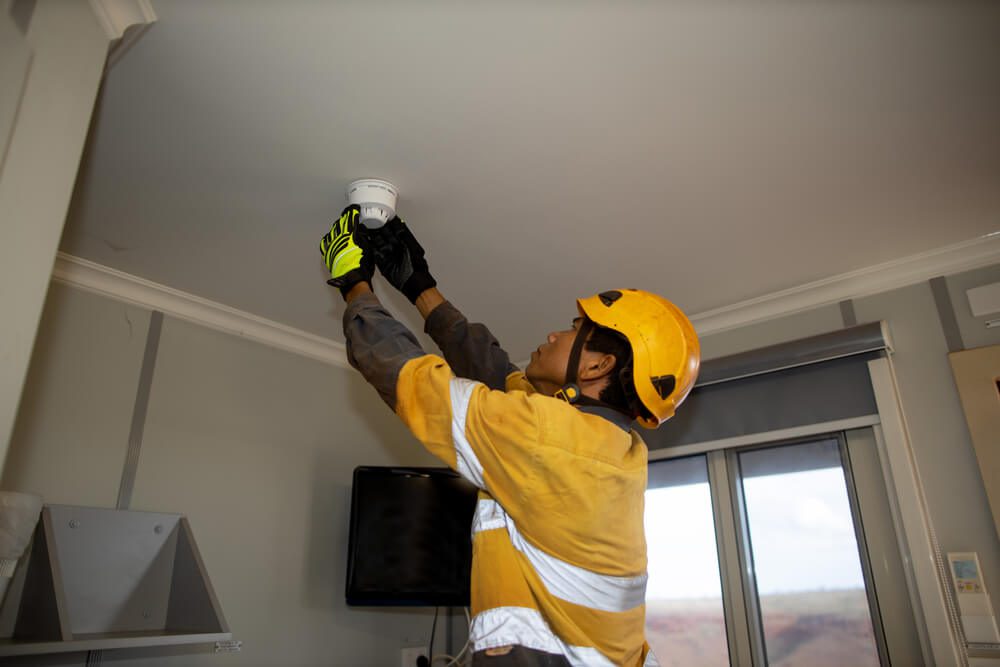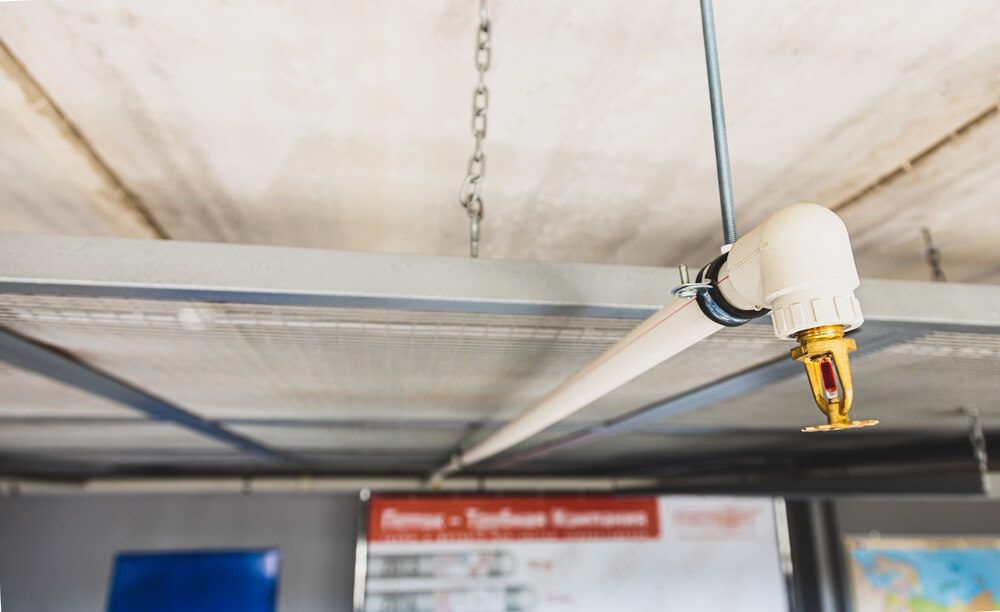Understanding how a flame detector works and how to use them is vital to keeping yourself, your employees, and your building safe and sound. Many fields, particularly those in the mining, power and industrial sectors, need flame detectors that are reliable and of the highest standard.
Does this sound like what your business needs? Lindberg Process has more than three decades of experience delivering combustion and energy systems to these industries. We can help you by installing Honeywell thermal solutions to safeguard your industry. Let’s read on to learn more about flame detectors.
What Is a Flame Detector?
 A flame detector is a sensor that helps protect an area in response to an open flame, fire, or smoke. They usually trigger an alarm, turn off a fuel line, and activate a fire control system.
A flame detector is a sensor that helps protect an area in response to an open flame, fire, or smoke. They usually trigger an alarm, turn off a fuel line, and activate a fire control system.
The main role of a flame detector in industries and businesses is to provide an overview of how the ignition system and furnace are operated. A flame detector is preferable to a heat or smoke detector due to the fast response times and reliable methods of flame detection.
Choosing the right flame monitoring system is vital — the Honeywell U2 Flame Monitoring System provides a reliable and secure signal processor for different businesses.
Types of Flame Detectors
There are various types of flame detectors that change how they work and what they are used for:
Ultraviolet (UV) detectors
Ultraviolet (UV) detectors identify fires, explosions, and the type of flame. As soon as the flame emits from the source, the Ultraviolet (UV) detector can determine the origin of the fire. The only downside to this type of flame detector is the inability to penetrate larger debris, like dirt, oil film, and smoke.
UV/IR Detectors
UV/IR detectors combine Ultraviolet (UV) and infrared (IR) detection to analyze heat emitted from a UV point of view and an IR point of view. The combination of two types of detection methods helps reduce errors.
IR/IR Flame Detectors
IR/IR flame detectors use two varying infrared frequency levels to detect fires.
Infrared (IR) Flame Detectors
Infrared (IR) detectors use a thermal imaging camera and infrared band to detect hot gas near the detection point. The benefit of using an infrared (IR) detector is the ability to detect larger debris, like smoke, oil film, particles, and dust. However, other gas sources may create a false alarm.
Triple IR Detector
The triple IR detector is similar to the IR flame detector. Still, it uses three wavelength bands to cut down on the number of human errors or false alarms.
Closed Circuit
Closed circuit cameras (CCTV) can be used to detect smoke or fog. However, they are not the best choice for detecting a fire. This closed circuit television flame detector can succumb to fog and smoke, which reduces vision.
How Does it Work?
Flame detectors are designed to distinguish the differences between flames, radiation, hot items, welding, and non-flame heat sources. These detectors are built to help reduce false alarms and cut down costs.
Flame detectors use an electronic circuit to define wavelengths and provide users with an expansive field of view. An infrared fire detector uses IR imaging that flickers throughout the detection process, enabling the user to operate the sensor through thick debris and dust.
You can also use dust extraction systems in tandem with a flame detector to get rid of dust, welding flames, or debris.
Choosing the Right Flame Detector
The best way to choose a flame detector is to analyze the origin and type of fire. You must also keep in mind the size of the protected area, detection capability, environment, flame characteristics, and detector response time.
Installing a Flame Detector
To avoid mishaps, analyze the angle of the detector, detection range, obstructions, ignition areas, and mounting height. You can connect a flame detector to a fire alarm panel or site monitoring system.
Where to Use Flame Detectors
The most common industries and areas to use flame detectors are as follows:
- Petrol pump stations
- Petrol storage
- Arc welding workshops
- Underground tunnels
- Wood stores
- Chemical plants
- Chemical warehouses
- Industrial warehouses
- Power plants
- Motor factories
These industries use flame detectors to identify liquid gas, smoke, and fire that can create a spreadable fire.
Use Lindberg Today to Safeguard Your Hard-Earned Business!
If you need to install a flame detector to keep your business protected and avoid any liabilities, contact Lindberg Process Equipment today to get started. We can help you protect yourself, your equipment, your coworkers, and your livelihood.





